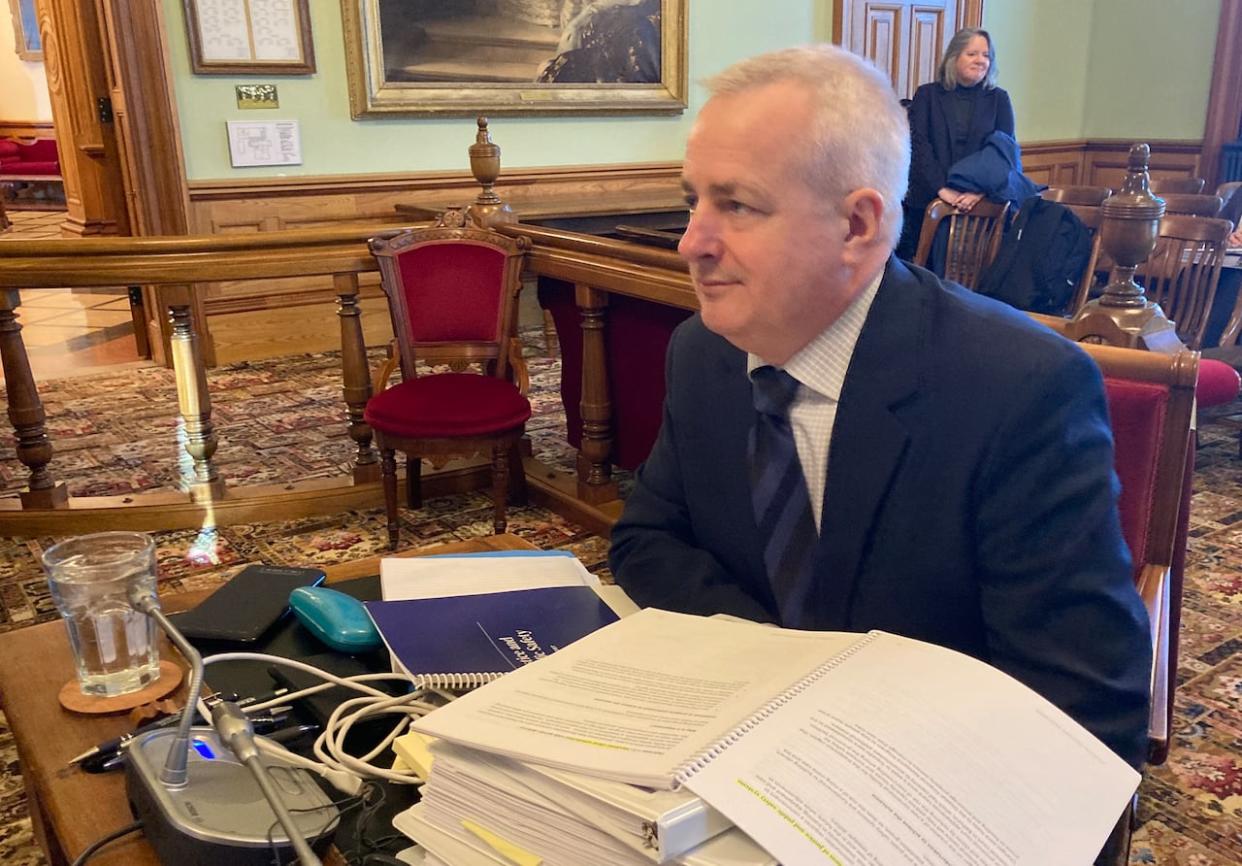Backlog of N.B. child protection cases finally cleared, committee of MLAs told

A backlog of family court cases in New Brunswick involving child protection has finally been eliminated and the province is no longer missing legislated deadlines to get such matters before judges, a committee of MLAs was told Tuesday.
Deputy justice minister Mike Comeau said the crunch of delayed cases has been whittled down to zero.
"We have reached the point, many months ago now, where we do not miss those legislated deadlines," he said during an appearance at the legislature's public accounts committee.
"The cases simply aren't allowed to go along longer than those legislated timelines. The child protection cases are the number 1 priority all day, every day in the family division of Court of King's Bench, so the backlog problem has been addressed, finally."
Chief Justice Tracey DeWare issued a directive in October 2022 requiring the courts to make child protection cases a priority because they weren't being heard within the 30 days required under provincial law.
"The reality is that it was quite uniformly the case that those timelines were not being met," Comeau told MLAs on Tuesday.
DeWare's 2022 directive instructed the courts to postpone dozens of other pending cases to ensure they complied with the time limit.
She issued the document after the New Brunswick Court of Appeal ruled that a case that missed the 30-day limit was "symptomatic of a larger problem" and non-compliance with the act was "endemic."
The Higgs government promptly amended the Family Services Act to change the 30-day timeline to 90 days.
That same longer timeline is also in the new Child and Youth Well-Being Act proclaimed into law last month.
Comeau said Tuesday that in the wake of DeWare's directive, the department also "staffed up" family court services and the courts reorganized their dockets to eliminate what had been a backlog of more than 120 cases.
DeWare issued a new warning last September that judicial vacancies on the Court of King's Bench were threatening to create more delays in family courts.

Chief Justice Tracey DeWare issued a directive in October 2022 requiring the courts to make child protection cases a priority. (Pat Richard/CBC)
Since then, the federal government has appointed an associate chief justice of the court, Larry Landry, whose role includes administering the court's family division.
The federal government also appointed two new Court of King's Bench justices in Moncton and Miramichi last October.
Comeau confirmed private family court cases — those that don't involve the province stepping in — continue to face long waits for court dates.
A private family court case currently takes 24 months to get to a full-day hearing in Saint John, 12 months in Moncton and 10 months in Fredericton.
The Office of the Commissioner for Federal Judicial Affairs Canada said there are no family court judicial vacancies in the family division of Court of King's Bench in New Brunswick.
The trial division has two vacancies.
But Fundy-The Isles-Saint John West MLA Andrea Anderson-Mason, a former attorney general and family law practitioner, pointed out New Brunswick has fewer family court judge positions per capita than Nova Scotia.
There is one family court justice for every 75,000 people here compared to one for every 55,000 people in Nova Scotia, she said.
Under questioning by Anderson-Mason, Comeau said the new court building under construction in Fredericton was designed for the current number of judges, not for any potential increase that may happen to match population growth.

 Yahoo News
Yahoo News 
